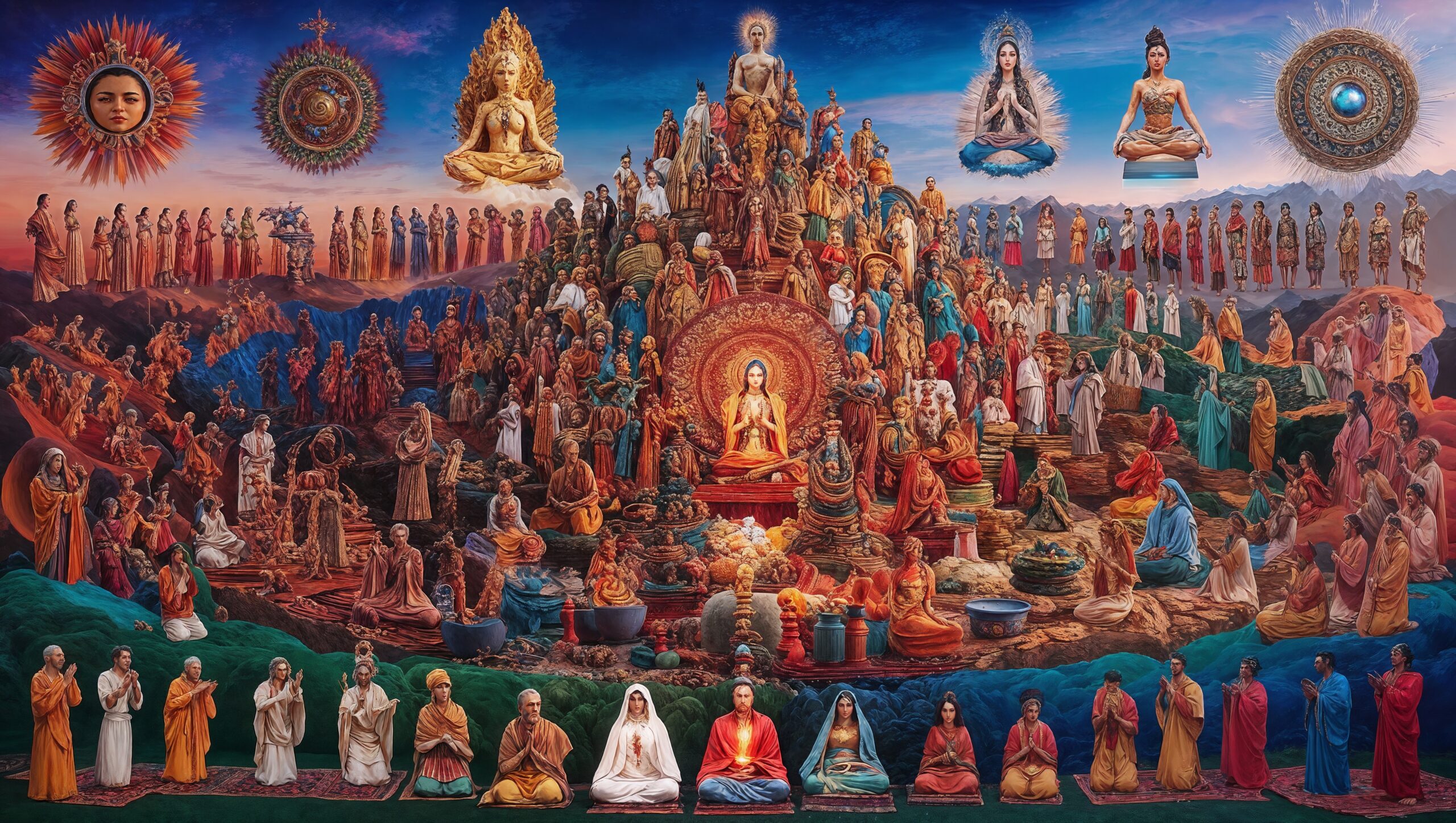Religion has been an enduring force in human history, woven into the fabric of societies from the earliest days of our species. From ancient rituals to modern spirituality, religion seems to answer something essential in the human psyche—a deep-rooted need for meaning, connection, and purpose. This blog will explore why humans created religion, the psychological and existential needs it fulfills, and how it continues to play a role in the modern world.
Whether you are a firm believer, an agnostic, or simply curious, understanding the origins and functions of religion reveals something profound about what it means to be human.
1. The Origins of Religion: What Was the First Religion?
When we think of religion today, we might imagine established traditions like Christianity, Islam, or Hinduism. But religion’s origins are far older than any organized faith. The earliest known religious practices were grounded in animism, where early humans believed every part of nature—trees, rivers, animals—possessed a spirit. Shamanism, an ancient practice involving ritual to connect with these spirits, may have been humanity’s first attempt to understand the mysteries of life and nature.
Archaeological findings give us glimpses of early religious practices. Ritualistic burial sites from over 100,000 years ago reveal the respect early humans held for death and the possible belief in an afterlife. These practices evolved over time, leading to the first gods and goddesses, and eventually structured systems that could answer life’s deeper questions.
2. Why Humans Need Religion: The Psychological and Existential Drives
Religion’s persistence is tied to profound human needs. The prospect of death, the search for purpose, and the need for moral direction are all part of the human experience, and religion provides ways to satisfy these needs.
Facing Mortality
Every religion addresses mortality in some way. Ancient rituals and beliefs evolved into doctrines about the afterlife, reincarnation, or the promise of eternal peace. For many, these beliefs help to lessen the fear of death and bring comfort, suggesting that life continues beyond this world.
The Search for Purpose
Religion provides answers to existential questions: Why are we here? What is the meaning of life? As Viktor Frankl, the renowned psychologist, argued, humans have an intrinsic “will to meaning.” Religion fulfills this by offering a grand narrative that gives life direction, a purpose, and an explanation for our place in the universe.
Moral Frameworks
Religion also functions as a moral compass, offering a code of behavior that helps people navigate right and wrong. Shared beliefs promote cohesion and allow societies to agree on principles that hold communities together. Religious teachings on compassion, humility, and respect are moral bedrocks that shape cultures and guide individual behavior.
3. The Social and Evolutionary Function of Religion
Beyond personal fulfillment, religion has served an evolutionary function. Early humans who formed groups had better chances of survival, and religion helped to unify them. By promoting cooperation, discouraging harmful behavior, and rewarding altruism, religion helped stabilize communities.
Religion also provided a mechanism for social order. Priests, shamans, or religious leaders often played dual roles as community leaders, guiding others in times of crisis. By structuring social interactions and creating a sense of shared purpose, religion has been essential in humanity’s survival and progress.
4. The Big Picture: Religion’s Role in Modern Society
While organized religion may seem less influential today, spirituality and religious practices remain crucial for billions worldwide. In fact, as people seek alternative forms of belief and spirituality, many ancient practices are reemerging in new forms, showing that the essence of religion is still highly relevant.
In modern times, practices like mindfulness and yoga bring spiritual traditions into secular spaces, bridging ancient wisdom with contemporary life. This shift reflects a deeper need for personal connection to the divine or spiritual, even as traditional religious institutions evolve or decline.
5. Religion and Affiliate Products
As we explore the role of religion in human history, you may want to dive deeper into this fascinating topic or cultivate a personal spiritual practice. Here are some recommended resources to help you on that journey:
- Books on the History of Religion: The History of God by Karen Armstrong, Sapiens by Yuval Noah Harari (affiliate links).
- Courses on Religious Studies and Existential Psychology: Courses on platforms like Udemy and Coursera that explore world religions, psychology, and spirituality.
- Spiritual Wellness Tools: Meditation apps like Calm or Headspace, mindfulness journals, or guided spirituality courses (affiliate links).
These resources offer ways to explore your beliefs, develop mindfulness, and learn about the shared human journey through religion.
Conclusion: Embracing the Human Condition Through Religion
Religion’s role in human history reveals profound truths about our shared experience. While religions vary widely, they all address humanity’s most fundamental concerns—our mortality, purpose, morality, and community. Even as society changes, religion’s underlying value remains intact, providing people with guidance and peace in an ever-complex world.
Religion will likely continue to adapt, fulfilling humanity’s ever-evolving needs. Through exploring our beliefs and spiritual practices, we embrace what it truly means to be human.




